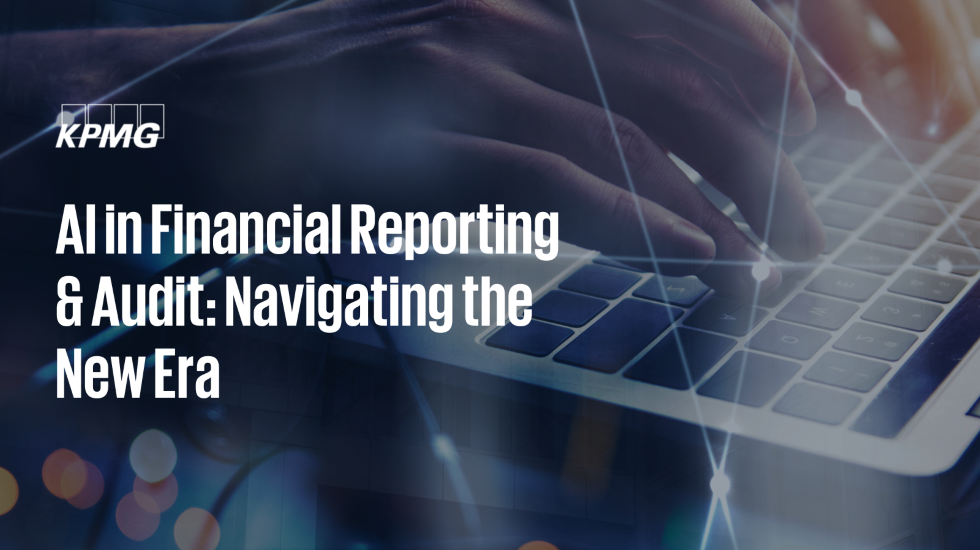KPMG survey: Organizations report increased market pressure around new technologies
Despite struggles to keep up with the pace of change, executives report enhanced performance and profitability due to digital transformations

NEW YORK, October 1, 2024 – U.S. executives are feeling more competitive pressure when it comes to investing in emerging technologies compared to last year, according to a new survey by KPMG International, and businesses are struggling to keep up with the rapid pace of technological change.
According to the survey of 400 U.S.-based executives at companies with revenue of $250 million and above, a large majority of respondents are experiencing heightened concerns around market competition (73%), trust in new technologies (70%) and regulatory challenges (69%), surpassing last year's levels and exceeding the global average.
While strategic concerns have intensified, operational worries like capacity constraints have slightly eased, signaling a shift in focus toward external pressures and trust issues in technology adoption.
Companies struggle to keep up with the pace of change
Meanwhile, 81% of companies are struggling to keep up with the pace of change, the survey found, with financial constraints being a major stumbling block for staying competitive. The survey reveals that 56% of organizations often feel they don't have the budget to keep up with the rapid technological advancements.
Despite prioritizing the adoption of new technology to add value to their business models, 58% of organizations still face weekly disruptions due to flaws in their legacy systems, highlighting the challenges in balancing modernization with existing infrastructure.
“AI is constantly evolving, putting pressure on businesses to outpace the disruption as they scale their AI-driven transformations across their organization,” said Steve Chase, Vice Chair of AI and Digital Innovation at KPMG U.S. “Transformation in the AI era demands a strong foundation. Leaders should be investing in capabilities that will be crucial for long-term success, particularly workforce readiness and data modernization."
Digital transformation: Progress in improving profitability and performance
Despite these challenges, the survey also highlights the positive impact of digital transformation efforts on profitability and performance. A significant majority (88%) of U.S. executives report improvements in these areas as a result of their digital transformation initiatives. This marks a substantial advancement from 2023 when only 45% reported such improvements.
“In my experiences with enterprise-wide transformations, the most successful that see long-term financial returns are those that relentlessly focus on sustainable value creation, prioritize people and culture and invest in the right technology and data foundations,” said Atif Zaim, Consulting Leader at KPMG U.S.
Cybersecurity both the top priority and top barrier to transformation
Cybersecurity is both the top priority and top barrier to transformation for businesses. With 43% of respondents considering cybersecurity capabilities the key attribute to thrive in a digital economy, organizations are placing critical importance on safeguarding their digital operations.
At the same time, cybersecurity and privacy concerns, along with unaddressed tech debt, are the respondents’ top barriers to digital transformation, emphasizing the need to modernize legacy systems to move forward on their digital transformation journeys.
Vast majority see business value from their AI investments
In terms of AI adoption, U.S.-based respondents report results in line with the global average, with 74% already generating business value from their AI implementation. Of this group, 39% have AI use cases delivering business value and 35% are scaling AI with ROI achieved. The focus remains on advancing maturity levels to unlock broader benefits and move beyond proof-of-concept stages.
U.S. executives favor collaborative and democratized approaches to AI experimentation, with minimal reliance on top-down initiatives. While U.S. organizations prioritize continuous oversight (38%) and centralizing AI governance (38%) as key strategies for securely scaling AI, there is room for improvement in democratizing AI governance and adopting zero-trust frameworks compared to global peers.
Looking ahead, U.S. respondents expect AI to transform knowledge work by automating tasks and redefining roles. With 84% predicting a shift from knowledge creation to knowledge sharing and 82% foreseeing AI automating routine tasks, U.S. executives anticipate major changes in job structures, necessitating investments in upskilling and reskilling.
The U.S. lags behind global peers in embedding data and analytics
The survey reveals that U.S. respondents lag behind global peers in embedding data and analytics practices. Significant gaps exist in areas such as data science, data accessibility, and data monetization, indicating opportunities for U.S. executives to strengthen data governance, culture, and overall effectiveness in utilizing data assets. U.S. organizations trail global counterparts across all key data and analytics activities in their likelihood to be in the top two levels of data maturity.
Furthermore, the survey reveals that U.S. respondents give lower prioritization to extracting insights and fostering a data-driven culture compared to their global peers. This suggests that there is room for improvement in leveraging data for competitive advantage, strengthening their data culture, and making real-time analytics-informed decisions among U.S. organizations.
“As the technological landscape continues to evolve, U.S. businesses must prioritize data modernization practices to remain competitive in the digital age. By addressing the gaps in data maturity and fostering a data-driven culture, organizations can unlock the full potential of their data assets and gain a competitive edge in the market,” said Matteo Colombo, Data & Analytics National Consulting Leader at KPMG U.S.
Companies prioritize environmental key performance indicators and ensure initiatives target sustainability goals
The survey also highlights the U.S. respondents’ prioritization of environmental key performance indicators and sustainability goals. Ranking second in performance indicators, just behind financial considerations, U.S. respondents place a stronger emphasis on environmental metrics compared to the global average.
Specifically, 71% of U.S. organizations ensure that their tech investments directly target sustainability and social responsibility goals, slightly above the global average.
"U.S. companies are leading the charge, integrating sustainability into their tech investments and core business strategies,” said Tegan Keele, Sustainability Data & Technology Leader at KPMG U.S. "With 71% aligning tech investments to sustainability goals, we're seeing environmental responsibility become a key driver in business decisions, positioning companies for success in an eco-conscious market."
KPMG global tech report 2024
Insights on the current technology landscape
Download today2024 KPMG US technology survey report: The digital dividend
US businesses are seeing their tech investments deliver profits and performance. But keeping up with the pace of innovation remains a challenge.
About KPMG LLP
KPMG LLP is the U.S. firm of the KPMG global organization of independent professional services firms providing audit, tax and advisory services. The KPMG global organization operates in 143 countries and territories and has more than 273,000 people working in member firms around the world. Each KPMG firm is a legally distinct and separate entity and describes itself as such.
KPMG is widely recognized for being a great place to work and build a career. Our people share a sense of purpose in the work we do, and a strong commitment to community service, inclusion and diversity and eradicating childhood illiteracy. Learn more at www.kpmg.com/us.
Explore more

2024 KPMG US technology survey report: The digital dividend
US businesses are seeing their tech investments deliver profits and performance. But keeping up with the pace of innovation remains a challenge.

KPMG Upgrades GenAI Audit Assistant, Unveiling New Capabilities To Empower Its 9,000+ Audit Partners and Professionals
Today, KPMG, LLP, the US audit, tax and advisory firm, announced upgrades to KPMG Audit Chat released in 2023, a proprietary generative AI tool built on Azure OpenAI service, and to KPMG Clara, our global smart audit platform.

Navigating The AI Era In Financial Reporting
All U.S. financial reporting leaders surveyed report they expect to be piloting or using artificial intelligence (“AI”) in financial reporting within three years, according to a new survey released today by KPMG LLP.

KPMG LLP AI & Digital Innovation Quarter Pulse Survey - Q2 2024
Survey reveals the majority of leaders across the U.S. recognize GenAI as important to gaining competitive advantage and market share.
